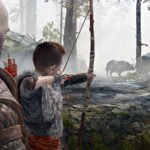
Every gamer asks themselves at some point in time, is game development right for me?
This is good! Game development is a steadily growing field with a wide variety of ways to be creative, learn recent technologies, and even make the world a better place. Let’s look at the path to a brand-new game development skillset.
Dive in Project-First

Perhaps the greatest piece of advice for learning how to make video games is actually making games yourself. A depressing number of graduates leave school and seek game industry employment without ever having finished a game project of their own, maybe not even one with friends. On a smaller scale, countless would-be game developers start reading tutorials, watching videos, and reading books, and burn out before they ever put pen to paper (or finger to keyboard).
Game development is best learned by doing. Granted, this is not always the most efficient way to learn a new technical skill, but the constant reward cycle of starting small and frequently achieving new desired results is successful far more often.
Dream up a project, go try to make it, learn something when you get stuck, and repeat the process until the game is done.
Learn Your Strengths and Specialize

When you’re persuaded to dream up a project, determine where your best work is going to shine. Maybe you have a great mind for coding. Perhaps you draw better than anyone you know. You might be a brilliant designer or a hilarious writer, and you may realize you have gaps to fill. One of the greatest things about modern game development is that you can fill in for any weaknesses that hinder you or your team. If you can’t draw, not only can you learn, but you can also find many free or low-cost art resources you can use in your projects. If you don’t know the first thing about programming, and even if you don’t want to, there are multiple professional-grade game engines you can utilize without cracking open a code editor. It’s hard to fill in for skillful writing, but it’s easy to create a concept that focuses on action and uses player interaction to tell its own narrative. Find a way to let your specialty drive the project.
Participate in the Community

The game development community is truly remarkable. From social media to your own back yard, game developers and creators at all levels take opportunities to reach out and connect, and the benefits are endless. Whatever your primary discipline may be, it’s very likely that using it to make games is different than just about every other application of that skill. Benefitting from the experience and wisdom of your colleagues is crucial if you want to survive and make yourself competitive. Be good to those having less experience, and you may find that those with more experience will be good to you.
Finish What You Start
Don’t skip the polish. Also, don’t skip the menu, or the credits, or the Easter eggs. It’s sad how many people work on a game jam or a few small prototypes and think they have all the right muscles developed to go push out a commercial game. The truth is, implementing great game mechanics and content isn’t always the hard part. Sometimes that level select screen you’ve never had to make before turns into something that changes the whole project. Every developer and creative person has a digital graveyard for projects that never see the light of day. Some projects are stopped for great reasons, others never get a fair chance. The important part is, if you’re a game creator, you have to make games. Fragment development doesn’t matter.

Finally, don’t talk yourself out of making a game. Everyone has at least one good, unique video game in them, and those games deserve to exist! Doubt doesn’t matter, education and experience don’t matter, nothing can stop you from creating your dream project if you’re willing to put in the work and stick with it. Sadly, a full guide to the tricks and tools of the trade is beyond the scope of this article, but determining what ingredients to put into your passion project is a big part of the fun that you’ll enjoy discussing after it’s done.
Let us know what dream game project you’d love to tackle!



